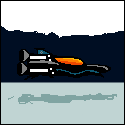|
also i feel like there should just be a generic "history" thread but i'm usually wrong about such things
|
|
|
|

|
| # ? May 13, 2024 10:23 |
|
bewbies posted:also i feel like there should just be a generic "history" thread but i'm usually wrong about such things There was previously an amazing "What, this really happened?" history thread but it got goldmined and I don't think there was ever a replacement.
|
|
|
|
Randarkman posted:The policies pursued that led to hyper-inflation also weren't as obvious as just printing lots of money (remember that Germany was still on the gold standard). If I remember correctly one of the primary drivers was that the German government resolved to continue paying the factory workers in the occupied Ruhr, who weren't going to work, full or even inflated wages, and that this helped drive inflation out of control. Inflation was already out of control, though. The strike happened because the French had occupied the Ruhr. They occupied the Ruhr because the Germans had defaulted on coal and timber payments, and the French were taking coal and timber payments because Germany couldn't afford to buy hard currency anymore, because inflation was out of control.
|
|
|
Phanatic posted:There was previously an amazing "What, this really happened?" history thread but it got goldmined and I don't think there was ever a replacement. Yeah it was a good one. Should be worth trying another now.
|
|
|
|
|
close this thread so all the Good Posters go over to that one pls
|
|
|
|
Woah woah, lets not go nuts.
|
|
|
|
|
iirc that thread was really good until it got taken over by clueless posters barging into the thread and raving about that loving Polish bear again and again In PYF there’s also a „favourite historical fun fact“ with plenty of cool posts; it’s been somewhat dormant for the last couple months though
|
|
|
|
System Metternich posted:iirc that thread was really good until it got taken over by clueless posters barging into the thread and raving about that loving Polish bear again and again There was a Polish bear??
|
|
|
|
Polish Bear is my favourite brand of wax for my car
|
|
|
|
I hear this is the Polish bear thread?
|
|
|
|
No, this is the tank destroyer thread.
|
|
|
|
If we try hard and believe in ourselves (and First Lord of the Admiralty Jackie Fisher, PBUH) maybe this could become the Battlecruiser thread.
|
|
|
|
Pretty sure this is the Gay Black Hitler thread.
|
|
|
|
i made a wrong turn, plz direct me to pike thread
|
|
|
|
Cythereal posted:Pretty sure this is the Gay Black Hitler thread. Puts a new spin on Polish bears I guess
|
|
|
|
There's sort of one in PYF but the List Things Forum lacks academic rigor
|
|
|
|
A friend of mine is interested in reading a book or two about the Nuremberg Trials. Does anyone have any recommendations?
|
|
|
|
 Yeah guys.
|
|
|
|
HEY GUNS posted:i made a wrong turn, plz direct me to pike thread go down past the cod and salmon and turn right at the perch thread
|
|
|
|
genola posted:A friend of mine is interested in reading a book or two about the Nuremberg Trials. Does anyone have any recommendations? Comedy answer: Speer's "Inside the Third Reich", but skip to page 507. appears freely available here: https://archive.org/details/Inside_the_Third_Reich_Albert_Speer ulmont fucked around with this message at 18:26 on May 1, 2018 |
|
|
|
zoux posted:
How can she be waifu material if she is French?
|
|
|
Yvonmukluk posted:I was reading a history of the 3rd Royal Tank Regiment in WW2, and it got me thinking. Looking at their record, they seem to have been involved in most of the major British battles/campaigns of the war in the west (except for the Italian front). Reminds me sort of the Royal Artillery Battle Honours/Motto which is simply: Everywhere in Latin.
|
|
|
|
|
Yvonmukluk posted:Does anyone else have examples of units that manged to be involved in almost every major campaign/battle of a war?
|
|
|
|
Polish Chevaux-legers of the Guard were with Napoleon from Spain until Waterloo and beyond. I think a few officers even accompanied him to Saint Helena. 225 were definitely at his side during the first exile. Many had served with the Legions before, since Italy.
|
|
|
|
Jobbo_Fett posted:How can she be waifu material if she is French? Anime finds a way.
|
|
|
|
Are knuckle dusters/brass knuckles effective weapons? I've heard that WW1 soldiers sometimes carried them when raiding trenches, which surprised me a bit; I figured a sabre or something would be more effective, or a even a knife if space is tight.
|
|
|
|
EggsAisle posted:Are knuckle dusters/brass knuckles effective weapons? I've heard that WW1 soldiers sometimes carried them when raiding trenches, which surprised me a bit; I figured a sabre or something would be more effective, or a even a knife if space is tight. too close for swords, they use a dagger roughly the size of a lefthander. it's either that or come up with some of the funkier italian fighting styles
|
|
|
Tevery Best posted:Polish Chevaux-legers of the Guard were with Napoleon from Spain until Waterloo and beyond. I think a few officers even accompanied him to Saint Helena. 225 were definitely at his side during the first exile. Many had served with the Legions before, since Italy. Don't forget their officers taught that raised Danish Red Lancer regiment how to lance good too.
|
|
|
|
|
HEY GUNS posted:too close for swords, they use a dagger roughly the size of a lefthander. it's either that or come up with some of the funkier italian fighting styles Were trench knives not a thing in WW1?
|
|
|
|
zoux posted:Were trench knives not a thing in WW1? a trench knife is roughly the size of a lefthander, i think
|
|
|
|
SeanBeansShako posted:Don't forget their officers taught that raised Danish Red Lancer regiment how to lance good too. hot take, nobody in the 19th c can lance good anymore
|
|
|
|
Didn't Barthas have a story about the unit getting issued cutlasses and refusing to take them?
|
|
|
|
EggsAisle posted:Are knuckle dusters/brass knuckles effective weapons? I've heard that WW1 soldiers sometimes carried them when raiding trenches, which surprised me a bit; I figured a sabre or something would be more effective, or a even a knife if space is tight.
|
|
|
|
Polikarpov posted:If we try hard and believe in ourselves (and First Lord of the Admiralty Jackie Fisher, PBUH) maybe this could become the Battlecruiser thread. That would be appropriate because Battlecruisers were literally the tank destroyer doctrine of the seas.
|
|
|
|
HEY GUNS posted:a trench knife is roughly the size of a lefthander, i think Well I meant they had knuckle duster grips, I didn't know if they were a later invention apocryphally tied to the war
|
|
|
|
You're probably thinking of the US m1918 trench knife As far as i know it's not terribly representative of what was used in the war by other nations, but it stuck as the image of 'trench knife'
|
|
|
zoux posted:Well I meant they had knuckle duster grips, I didn't know if they were a later invention apocryphally tied to the war Nope, the Mk. 1 Trench Knife had a knuckle duster grip in 1918.
|
|
|
|
|
Is it true that Joan of Arc never killed anyone in direct combat?
|
|
|
|
P-Mack posted:Didn't Barthas have a story about the unit getting issued cutlasses and refusing to take them? The translation is somewhat literal and it also uses the word "cutlass" to describe Gurkha kukri knives, but from ~25th September 1915: quote:They called the corporals to the company office. Barthas's company was never called on to patrol No Man's Land or raid enemy trenches in the way that BEF units were expected to while up the line. The French had a different way of organising this sort of thing. He spent the second half of 1917 at La Harazee, just to the west of the notorious Argonne forest. quote:We stayed in this sector nearly six months. There was never any serious business here, no mine explosions or gas attacks. This tranquility was troubled only by some trench raids by one side or the other, which made more noise than they did any harm. In February 1918 he encountered a company from another regiment which was commanded by an officer he used to know, and actually (hold onto your kepis, guys) respected. quote:On February 5 a company of the 248th Regiment was given orders to make an incursion into the German lines. We couldn’t just sit there twiddling our thumbs, and we had dispatches to feed. This company was the 15th, commanded by young Captain Guillot, who had acquired a well-deserved reputation for bravery. "We had dispatches to feed." Trin Tragula fucked around with this message at 23:16 on May 1, 2018 |
|
|
|

|
| # ? May 13, 2024 10:23 |
|
Here's a great quote from Sniping in France by H. Hesketh-Prichard:quote:But not much was done in No Man's Land in day¬light. Snipers lay out in it, and sentries watched it, and both sides sent a deal of lead across it, but when night fell, it became tenanted, and scouts and patrols crawled out into it—and sometimes never came back. The aim, of course, was always domination, and in order to gain domination many strange things were done. For instance, there was the " Silent Death," as it was called, invented by the Canadians, who, under cover of darkness, crawled out into No Man's Land every night, and lay there awaiting the advent of a German patrol. If such came, it was attacked hand to hand with trench daggers, and its members killed as silently as possible. This soon made the Germans very shy of taking their evening crawl, when so many of them who had gone over the top vanished into the darkness and were never heard of again.
|
|
|































